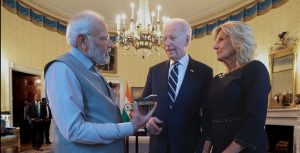The Delhi High
Court, hearing a bunch of petitions on marital rape, came up with a split
verdict on Wednesday on criminalising marital rape. A two-judge bench was
hearing a bunch of petitions on the question of criminalising marital rape. Justice
Rajiv Shakdher voted that the law be struck down while Justice C Ravi Shankar
ruled against criminalising marital rape. The decision will now lie with the
Supreme Court. The fundamental question while deciding on jurisprudence with
regard to marital rape is that of consent.
Also Read | Disappointing, upsetting: Activists react to Delhi HC verdict on marital rape criminalisation
India’s rape laws
are contained in Section 375 of the Indian Penal Code (IPC). While the law
defines rape, it posits two exceptions. The first, that a medical procedure
would not constitute rape and the second, sexual intercourse or sexual acts of
a man with his wife, if the wife is over 18 years of age.
People seeking the
criminalisation of marital rape argue that rape is rape whatever be the
relationship between the perpetrator and the victim. This was the argument that
featured prominently in Justice Rajiv Shakdher’s judgement.
According to
Justice Shakdher, differentiation on grounds of marital rape creates a
classification between married and unmarried women and such a classification is
unreasonable and manifestly arbitrary. The justice further observed that when
marriage is tyranny, the state has no legitimate interest of saving it.
Also Read | Continuance of marital rape exception egregiously problematic: Justice Shakdher
Justice Shakdher
found the marital rape exception violative of Article 21 of the Indian
Constitution. The judge found that the offence of rape and injury caused
remains the same irrespective of who the offender is, and that the right to
withdraw consent at any given point in time forms the core of the woman’s right
to life and liberty which encompasses her right to protect her physical and
mental well-being.
Also Read | India among 30 odd countries that have not criminalised marital rape
He further
observed that the marital rape exception is also in violation of Article 15 and
19(1)(a) of the Constitution. He found that the marital rape exception
discriminates within the same sex, solely on the ground of martial status and
the exception violates the guarantee given by the Constitution concerning
freedom of expression to married women.
Justice C Hari
Shankar, in disagreement with Justice Shakder, observed that an intelligible
differentia does exist between married and unmarried women and that it is not open
to a court to examine whether the object of legislation is sufficient to
justify the differentia.
He further
observed that there is nothing in the exception that obligates a wife to consent
to having sex and added that the exception retains the wife’s decisional
autonomy and has the right to say no, or, “a joyful yes”.
“Any assumption
that a wife, who is forced to have sex with her husband on a particular
occasion when she does not want to, feels the same degree of outrage as a woman
raped by a stranger, in my view, is not only unjustified, but is ex facie
unrealistic,” he said.







